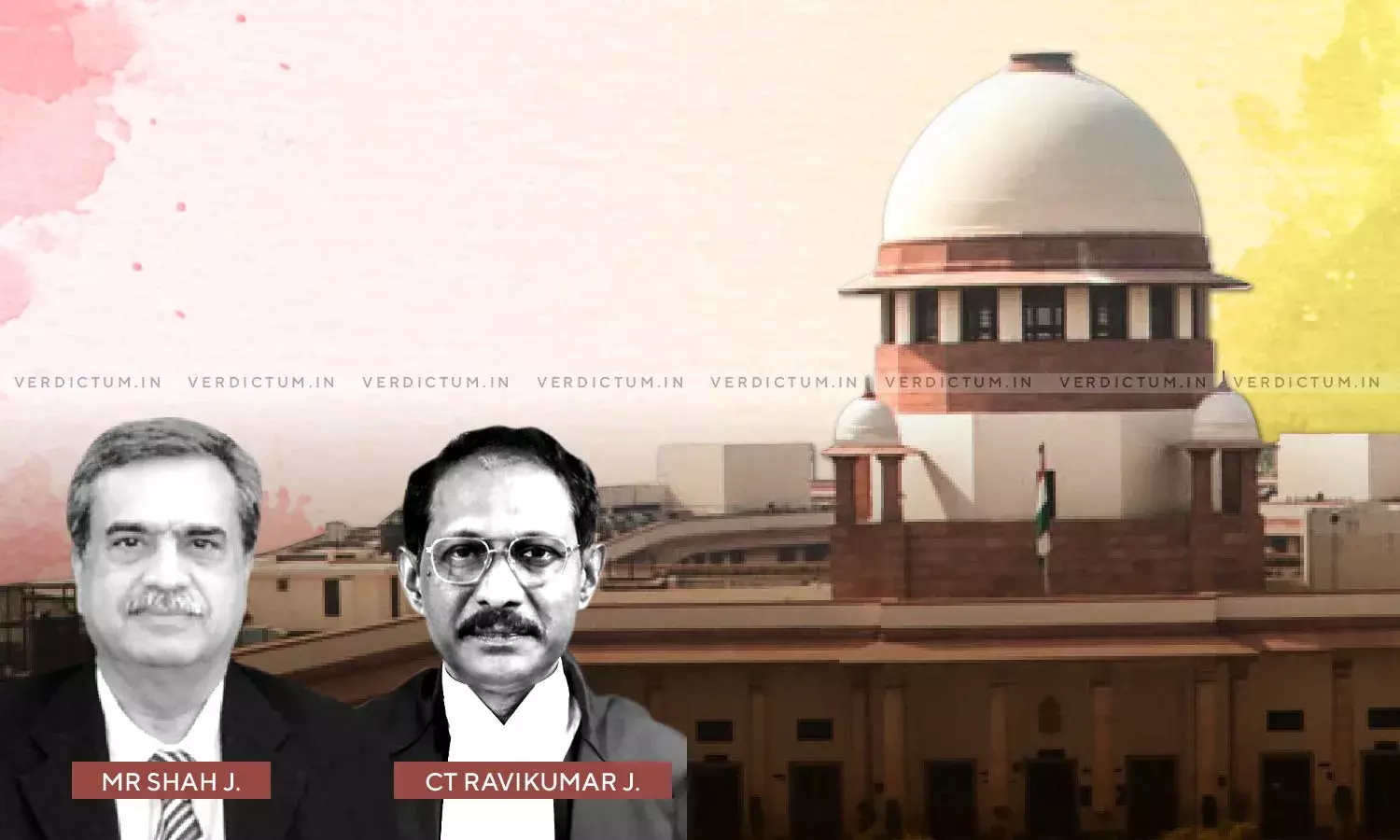Insurance Company Shall Pay Sum Required To Lawfully Reinstate Insured To Its Former Condition- SC
The Supreme Court recently allowing an appeal observed that the insurance company should pay such sum as would be required to reinstate or repair such property if the same could lawfully be reinstated to its former condition.
The Bench of Justice M.R. Shah and Justice C.T. Ravikumar observed that “in case company is unable to reinstate or repair the property insured, the insurance company shall be liable to pay such sum as would be requisite to reinstate or repair such property if the same could lawfully be reinstated to its former condition.”
In this case, the appeal had been preferred against the impugned judgment and order passed by the National Consumer Disputes Redressal Commission, New Delhi (NCDRC) wherein the order of the State Consumer Disputes Redressal Commission, Punjab was modified and the appellant was awarded depreciated value instead of the reinstatement value. The appellant had obtained Standard Fire and Special Perils Policy on reinstatement value and the surveyor appointed by the insurance company observed/assessed as such the loss on reinstatement value basis at Rs. 29,17,500/ and on depreciated value at Rs. 12,60,000/.
Senior Advocate Jay Savla appearing for the appellant submitted that the appellant should be entitled to the reinstatement value. It was also submitted that the NCDRC had wrongly reduced the claim to Rs. 12,60,000/ by misinterpreting clause 9 of Section 2 of the policy as it only gave option to the insurance company to either reinstate or replace the damaged/destroyed property. Further reliance was placed on Apex Court case Canara Bank Vs. United India Insurance Company Limited and Ors.; 2020 (3) SCC 455 and submitted that coverage provisions should be interpreted broadly and if there was any ambiguity, the same should be resolved in favour of the insured.
Advocate Amit Kumar Singh appearing for the insurance company submitted that the NCDRC had not committed any error in awarding the depreciated value as the goods insured were to be replaced on "as is basis" i.e., if the machinery was an old machinery, it was to be replaced by an old machinery and the value of the old machinery could be calculated only through deducting the value of the depreciation from the current value of the machinery.
The issue dealt with was-
Whether in the facts and circumstances of the case and on true interpretation of the relevant clause of the insurance policy, in case of damage of the plant and machinery due to fire, the complainant shall be entitled to the reinstatement value or the depreciated value.
The Apex Court interpreted clause 9 of Section 2 of the policy and noted that “firstly the option is given to the insurance company to reinstate or replace property damaged or destroyed instead of paying the amount of loss or damage. If the insurance company exercises the option of reinstatement or replaces the property damaged, the company shall not be bound to reinstate completely or partly but only as circumstances permit and in reasonably sufficient manner and in no case should the company be bound to expend more in reinstatement than it would have cost to reinstate such property as it was at the time of the occurrence of such loss or damage not more than the sum insured by the company thereon. However, in any case the company is unable to reinstate or repair the property insured, because of any municipal or other regulations in force affecting the alignment of streets or the construction of buildings or OTHERWISE, in that case, the company shall be liable to pay such sum as would be requisite to reinstate or repair such property if the same could lawfully be reinstated to its former condition.”
The Court observed that the case of the appellant was covered under second part of the clause 9 i.e., the company was unable to reinstate or repair the property insured and the report of surveyor would be relevant evidence to consider the sum required to reinstate or repair. Therefore , the appellant should be entitled to the reinstatement value and not the depreciated value.
Therefore, the Apex Court setting aside the impugned judgment of the NCDRC, held that the NCDRC had mis-interpreted the clause 9 of the policy and seriously erred in observing and holding that the insurance company should be liable to pay the depreciated value only and not the reinstatement value of Rs. 29,17,500/ with interest @ 7% from the date of order of the State Commission till the actual payment.
Accordingly, the appeal was allowed.
Cause Title- M/s Oswal Plastic Industries v. Manager, Legal Deptt N.A.I.C.O. Ltd.
Click here to read/download the Judgment




